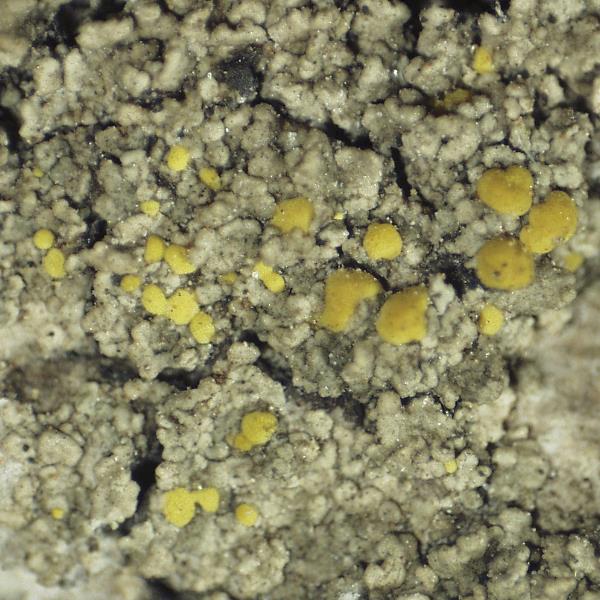
Consortium of Lichen Herbaria
- building a Global Consortium of Bryophytes and Lichens as keystones of cryptobiotic communities -
- Home
- Search
- Images
- Species Checklists
- US States: O-Z >
- US National Parks
- Central America
- South America
- US National Parks
- Southern Subpolar Region
|
Family: Candelariaceae |
Nash, T.H., Ryan, B.D., Gries, C., Bungartz, F., (eds.) 2004. Lichen Flora of the Greater Sonoran Desert Region. Vol 2. Life habit: lichenized, lichenicolous in one species Thallus: lacking or indistinct to crustose to squamulose, granular, areolate, bullate, pulvinate, lobate, rosulate to placodioid upper surface: gray to gray green, green yellow to yellow to orange yellow upper cortex: thin and pseudoparenchymatous medulla: white, indistinct photobiont: primary one a chlorococcoid green alga, +evenly dispersed throughout the interior of the thallus, secondary photobiont absent lower cortex: absent or similar to the upper cortex Ascomata: apothecial, lecanorine, biatorine in three species disc: rounded, flat to strongly convex margin: lacking or thin to thick, persistent or excluded exciple: thin and indistinct to thick and fan-shaped, often visible from the outside as a smooth raised margin surrounding the disc epihymenium: yellow-brown, granular hymenium: hyaline below, I+ blue; paraphyses: simple or branched near the apices, cylindrical to submoniliform, sometimes anastomosing below; hypothecium: hyaline asci: clavate, Candelaria-type, 8-32+-spored ascospores: hyaline, simple or sometimes with a thin septum, narrowly ellipsoid, ellipsoid, oblong, ovoid, citriform, teardrop-shaped or acicular, straight or curved, with one-many oil-drops Conidiomata: pycnidial, immersed to protruding, darker yellow than the thallus, or with conidiophores covering the lower surface of squamules in one species conidia: hyaline, narrowly ellipsoid to ellipsoid to oblong or rarely bacilliform or ±globose Secondary metabolites: pulvinic acid derivatives present in colored parts, possibly similar in all species but not investigated in detail here Geography: world-wide Substrate: on bark, wood, rocks, soil, mosses, or other lichens. Note: A revision of the genus in western North America is currently in progress, thus several species not yet formally described are presented below. Different species frequently grow together in mixed stands and great care should be taken when examining them. |
Powered by Symbiota









